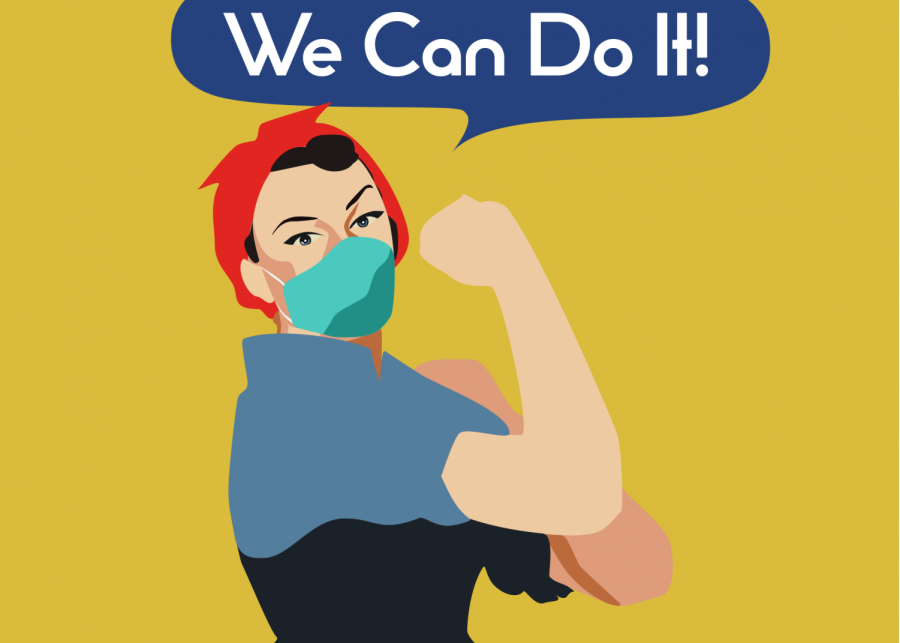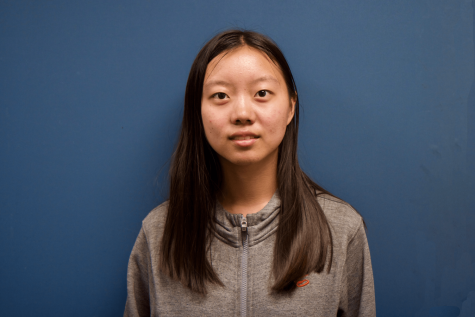Unity in the face of the coronavirus
May 25, 2020
It is undeniable that these are trying times. Many aspects of our lives are being tested in extreme ways for the first time, from our healthcare system to our motivation to do homework. Despite misinformation and economic stress, we are finding unity in our own unique ways, whether it be through our local leaders, or friends and family reaching out to support the community.
When schools and businesses began to close down, many felt uncertain. The COVID-19 pandemic had already inspired anxiety and dread in many, but lockdown also added the fear of loneliness, boredom and economic insecurity. Furthermore, President Donald Trump repeatedly gave guidance that conflicted with the advice of health officials, adding to the confusion.
However, through this crisis, local and state leaders have stepped up to quell panic and have consequently gained national recognition. While New York governor Andrew Cuomo has gained immense recognition for demonstrating leadership abilities, the efforts of California leaders, while quicker and more in line with public health officials than the rest of the country, have been less recognized. Bay Area leaders, such as Santa Clara County Public Health Officer Sara Cody and San Francisco mayor London Breed, were some of the first to ban large gatherings and order a shelter-in-place to prevent the spread of COVID-19. After several counties announced shelter-in-place orders on March 19, California governor Gavin Newsom followed suit, extending the shelter-in-place to the entire state. While their moves were scrutinized at the time, these California leaders were soon lauded as heroes as people saw the number of COVID-19 cases soa
“I remember seeing Governor Cuomo on TV making comments about not wanting to take away people’s civil liberties,” said London Breed, the mayor of San Francisco, in an article by The New York Times. “I understand that, I totally understand that. But I don’t think that’s what we were doing. I know the information I had. It showed me the best-case and worst-case scenarios and provided the guidance to avoid the worst-case scenarios.”
People are also finding unity through social media platforms. Online-conferencing platform Zoom, originally designed for businesses, has had rapid growth in consumers, now including students and teachers alike. Projects such as Folding@Home allow anyone to contribute to COVID-19 research by running COVID-19 simulations on personal computers. Twitter, notorious for its intense and divisive political discussions, is now filled with life updates, pets and social media challenges. Some challenges include #isolationcreation, in which artists continue their craft at home, and the Getty Museum Challenge, in which people recreate famous art pieces with home items, are inspiring creativity when creativity seems harder to find.
Lynbrook students are also doing their best to help out. Since the beginning of the school shutdown, ASB has been holding social media challenges such as #stayathome and LHS Distance Spirit week. Organizations started by Lynbrook students such as Keynote and Learn in Shelter provide students with extra tutoring to help with the difficulties that come with online learning. Projects such as Spero, which allows students to become pen pals with a senior, and ASB Virtual Staff Appreciation Grams, which allows students to send messages to staff, help spread kindness where it is needed.
Lynbrook junior Rohit Malhotra created Learn in Shelter when he heard that teachers were having trouble adjusting to online platforms for education. Initially promoting the organization through a Lynbrook Nextdoor chat, the Learn in Shelter team began to contact schools and principals that were also struggling to transition to online learning. Many teachers, especially elementary school teachers, have reached out to Learn in Shelter to help facilitate classes and tutor groups of their students.
“There are three types of people that we’re targeting,” Malhotra said. “It’s not only parents and students but also teachers. A lot of parents, [especially] elementary school parents that have received tutors, [found that] the tutors were really up to their expectations. Some teachers are facing problems, and they wanted some more help in their online classrooms and that’s where we provided tutors. So I think just meeting their expectations and helping them out would be one of the most rewarding experiences from this.”
Now, they have more than 200 tutors and students participating from three states in the US, and are currently interested in expanding to Canadian province Ontario. The difficulty of expansion, however, is that the work can be more time consuming. Luckily, Malhotra has the help of fellow officers Gaby Tran, Richa Malhotra and Sanjay Naidu.
“When I started, I started alone but I have some wonderful people that have joined me and helped me a lot,” Malhotra said. “We all work together very well in terms of providing for people and growing the organization, so it’s great to have them.”
The kind of positivity and leadership we’ve seen recently in our community is one that is greatly needed in this time of crisis. Hopefully, as COVID-19 continues to become a part of our daily lives, these unity efforts will be taken even further, rather than halted due to the eventual acceptance and desensitization regarding news of the virus.




























































